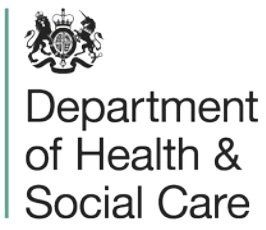Improved safeguarding and protections for vulnerable people
- Protections for people lacking mental capacity to be strengthened through major changes planned by the government to improve safeguarding
- Changes expected to address deep-rooted issues within the system by reducing the need for intrusive processes, providing better support for families, carers and health professionals
- Comes as Supreme Court reviews what counts as a deprivation of liberty in a case put forward by Northern Ireland
Vulnerable people lacking the mental capacity to make decisions about their care are expected to benefit from major changes to safeguarding and protections, following a consultation announced by the government today
The proposed Liberty Protection Safeguards aim to deliver improved protection and an easier and improved system to allow carers, psychologists, social workers and families to provide care to vulnerable people in circumstances that amount to a deprivation of liberty
The current Deprivation of Liberty Safeguards system is bureaucratic and complex, leading to poor understanding and application of the law by professionals, unacceptable distress for families and a backlog of 123,790 individuals, putting pressure on the social care system
The implementation of these new safeguards is expected to streamline processes and reduce the backlog of applications – focusing on those most vulnerable. A consultation on the Liberty Protection Safeguards will be launched in the first half of next year, seeking the views of those affected such as families, carers and practitioners including social workers, nurses, psychologists and occupational therapists. It will be jointly run by the Department of Health and Social Care and the Ministry of Justice
This delivers on calls from organisations including the Care Quality Commission, MENCAP and Mind for the implementation of new Liberty Protection Safeguards to replace the outdated Deprivation of Liberty Safeguards
For example, under the current system
- A lady in the advanced stages of dementia, who for over three years has had no concept of place, person or time and cannot walk, talk or chew, is required to have an assessment every year
- The assessment involves a GP, social worker, care home staff, admin staff and her advocate, and results in a long, report to determine whether she should be deprived of her liberty and if the care home is the best place for her
- Part of this assessment includes a GP visit who asks her a string of questions, despite this vulnerable individual having no indication of understanding or even awareness of anyone being there and cannot give any response
- This repetitive process is distressing for her family to witness every year and to be told they are depriving their loved one of liberty. Many other people have conditions like this which are unchanging
Liberty Protection Safeguards will allow for existing assessments to be reused, or for assessments to last for longer than one year. This will reduce the need for intrusive processes, which can be harmful or distressing for individuals and their families, and will allow for better focus on people who most need support and protection
Minister of State for Care Stephen Kinnock said
“Safeguarding the vulnerable and protecting their rights is our absolute priority of this government – this is about fixing a broken system by hearing directly from those with lived experience and their families
“There is currently a shameful backlog in the system of unprocessed cases under the current system which means that people’s rights are not being protected. At the same time, we know that many people in the system and their families find these intrusive assessments distressing
“This is about ensuring we are fully focused on the most vulnerable people in our society and their families – understanding their needs, ending the maze of referrals and paperwork, and delivering the best protections and safeguards possible."”
A 2014 Supreme Court ruling, known as Cheshire West, established an ‘acid test’ which broadened the definition of what it means to be ‘deprived of liberty’ and led to an increase of 300,000 referrals between 2013-14 and 2023-24 – in addition to a backlog of 125,000 cases
Each case represents an extremely vulnerable person who needs comprehensive care and support and does not have the mental capacity to make decisions about their care alone
In August, Northern Ireland put forward a challenge to the Supreme Court about the Cheshire West ‘acid test’ and what is considered a ‘deprivation of liberty’. This is a challenge to the current Deprivation of Liberty Safeguards, with any ruling having a UK wide impact
The UK government has been granted permission by the Supreme Court to intervene in this case – as it recognises the issue within the current system and sought to be part of this vital conversation and put forward a UK wide solution. The responses from this consultation will be used to inform a final Mental Capacity Act (2005) Code of Practice which will be laid in Parliament
The revised Code of Practice will incorporate changes in case law, legislation, organisational structures, terminology, and good practice since 2007 addressing critical challenges in the existing Deprivations of Liberty Safeguards framework
The last time the Mental Capacity Act Code of Practice and Liberty Protection Safeguards were consulted on was in 2022 which did not lead to any changes
If you have any further queries or plan on commenting publicly, please reach out to dhscexternalaffairs@dhsc.gov.uk




















